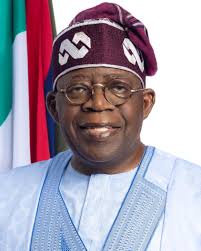
14 MAJOR DECISIONS TAKEN DURING FEC MEETING IN ABUJA
The Federal Executive Council (FEC), led by President Bola Tinubu, held its meeting on Monday, 23rd September 2024, at the Council Chambers of the State House in Abuja.
The FEC meeting had members of the council in attendance, including ministers and other approved members.
The meeting is the first after President Tinubu returned from his recent foreign trips.
Below are 14 key decisions from today’s Federal Executive Council meeting as made available by the Special Adviser to President Tinubu on Information and Strategy, Bayo Onanuga.
- The meeting reviewed the flooding in some parts of the country, especially the one that destroyed almost 50 percent of Maiduguri in Borno state.
The meeting also backed the President’s idea of setting up a Disaster Relief Fund to be funded by a portion of the revenue accruing to the Federation account. Funds will also be solicited from the private sector.
- The meeting resolved to set up a technical committee to conduct integrity tests on Alau Dam and other dams countrywide.
- The Council also approved the Economic Stabilisation Bills, which embody the recommendations of the Presidential Committee on Tax and Fiscal Policy Reforms set up last year by President Tinubu. The bills seek to amend the income tax laws, promote the export of goods and services, reform the exchange rate regime and unlock foreign exchange liquidity. One of the bills offers tax relief to companies that generate incremental employment. Another offers personal income relief to people in private and public employment, from N200,000 to N400,000.
Another of the bills seeks Federal and state collaboration to suspend certain taxes on small businesses and vulnerable populations. The Economic Stabilisation Bills, with the Council’s approval, will now be transmitted to the National Assembly for passage.
The council approved the contract for building an access road from Arterial Road N11 in Mabushi District to Judges Quarters within Cadstral Zone B07.
The Council approved a contract to build a 258 km 3-lane carriageway with continuous reinforced concrete pavement in Kebbi and Sokoto states. The stretch is part of the 1000km superhighway from Illela, Sokoto State, to Badagry, Lagos State.
The council approved the revised estimated contract cost for constructing Bodo-Bonny Road with bridges across the Opobo Channel in Rivers State. The contract was awarded in 2014 for N120 billion and revised in 2021 to N199, 923,638,963.87. The FEC approved another increase to N280 billion.
The council approved the rescoping and downward review of the contract to rehabilitate the Abuja-Kaduna-Zaria-Kano dual carriageway at a lower cost of N740.79 billion to Julius Berger.
Messrs CCECC Nigeria Limited was awarded two road contracts, including bridges in Kogi and Cross River, at a total cost of N133.4 billion. They are the construction of Cross River to Oferekpe Road and the rehabilitation of Kabba (Kogi State), Iyamoye-Omuo-Ikole-Ifaki-Ado Ekiti Road.
Messrs BDT International Limited was awarded the contract to repair the Gamboru Bridge along Gamboru-Ngala-Kala, Balde Road in Borno State. The cost is N3.2 billion, and completion will take 24 months.
Messrs CCECC Nigeria will repair the damaged loops and ramps of the Third Mainland Bridge superstructure and rehab Adeniji-Falomo Roads at N42 billion. Completion time is six months.
The council approved the N158 billion contract to construct service lanes for the Lekki Deep Sea Port through Epe to Shagamu-Benin Expressway. Dangote Industries will be awarded the contract under the Federal Government Road Infrastructure Development Fund and Refurbishment Investment Tax Credit Scheme.
The council approved the contract for the dualisation of Afikpo-Uturu-Okigwe Road in Ebonyi, Abia and Imo states. The road will be financed under the Federal Government Road Infrastructure Development and Refurbishment Investment Tax Credit Scheme.
Also approved by the councils are contracts for the repair of 14 bridges and roads and flooded sections of the Federal Highways nationwide..
The council approved no fewer than seven memos brought by the FCT Ministry. Among them was the contract for the building of Judges Quarters in Katampe. Also approved was the contract to construct an access road from Ring Road 1 by N16 Shehu Shagari Way to Judges Quarters.
 Premium News
Premium News